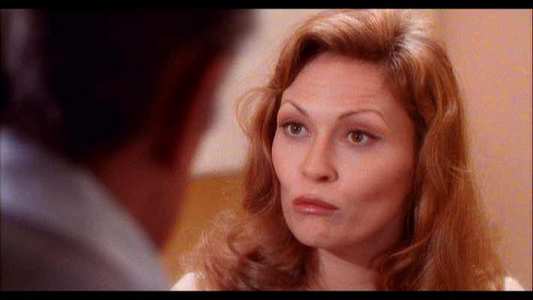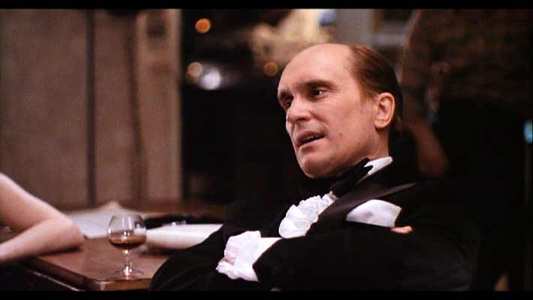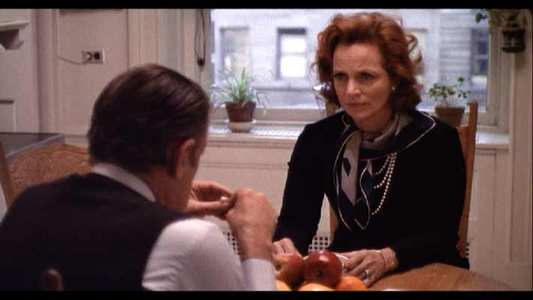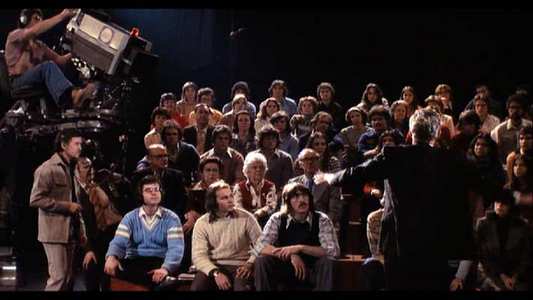Review of Network
Introduction
1976 was an interesting year for Hollywood. Just take a look at four of the Best Picture Oscar nominees: `Rocky`, `Taxi Driver`, `All the President`s Men` and `Bound for Glory` (the biopic of country singer Woody Guthrie, directed by the f***ed-up genius of the Brats, Hal Ashby) all films about white males struggling against corrupt systems that oppress their individuality, and the broad ignorance and apathy towards social decay that plagued 70s America. Similarly, Sidney Lumet`s `Network`, the other Best Picture nominee that year, tells the story of Howard Beale (Peter Finch), a recently sacked news broadcaster who causes a furore when he pledges to commit suicide live on national television, and proceeds to become a Messiah of rage for a disenfranchised populace who share his discontent and alienation. However, Paddy Chayefsky`s screenplay plunges the viewer deeper into self-examination: as Beale`s speeches begin to acknowledge their own futility, turning from exasperated anger to dehumanization and the desiccation of the individual, the audience stops listening. As cynical studio executive Robert Duvall and shady corporate Honcho Ned Beatty pull the strings on Beale`s outbursts, the popular rage becomes as hollow as the tube in the corner of the room, as the only popular angst is that which furthers self-worth.

Video
Okay, but the anamorphic transfer could have used a bit of polish, and it`s disappointing in comparison to say, the `Jaws` transfer. Lumet`s images still conjure a stark realist tone, and the brilliant Owen Roizman`s subtly luminous colour contrasts have been imitated ad nauseum: celestial studio lighting punctuates Beale`s theatre of excess, and autumnal hues give way to scorching rectangles of oceanic blue in UBS`s high-rise offices.

Audio
Pretty poor. This mono track is really no better than the video, unrefined and of inconsistent volume.

Features
Nothing but a trailer.

Conclusion
Okay, so the occasional bursts of voice-over narration are a bit redundant on further inspection, seeming like expositional afterthoughts to clarify logistical maneuvers in the plot, but this is still one of the finest cinematic polemics ever made. Whilst there`s nothing quite as hilarious as watching a bunch of `pseudo-insurrectionist sectarians` arguing over overhead clauses with studio execs in their colonial compound, the genius of Chayefsky`s script is in the melding of flat-out satirical rants (pushed here to poetic excess), earnest social contemplation and poignant humanity: the studio crew who react in belated apathy to Beale`s declaration of suicide. With its blend of realism and stylized monologues (the withering despair of pent-up aggression in Beatrice Straight`s `emeritus-years` speech single-handedly won her an Oscar, and you`ll see why.)
Arguments about the film`s superficial conservatism are rife, and the film is playfully dismissive of 60s radicalism (whether or not Chayefsky simply admits to an absurdity that wasn`t clear under the haze of `possibility` is another question), but they appear increasingly short-sighted. After all, this is no turgid homily against permissive liberalism, but an angry opposition to the apathy that Duvall and his corporate lackeys exploit for its statistical gain, as well as being a bleak admission of the frailty of man. What appeared at the time as an absurdly reactionary, hyperbolically pessimistic joke now seems painfully acute: in a world of 900 channels of triviality and regressive `Infotainment` passing as news, the film`s `madness` now seems as plain as a smack in the jaw.
Critics have tended to focus on matters peripheral to the central tract and, admittedly, Faye Dunaway`s egotistical, self-aware ice-queen Diana would be a pretty sordid indictment of feminism: she "arouses quickly, consummates prematurely", f***s her analyst, consults psychics for romantic advice and is apparently useless at everything but her career. It`s just as well that Dunaway plays this potentially crude stereotype with an intense, near volcanic inner-life, providing both the character`s hatchet-faced coldness and also the empathetic turmoil that lurks between her posturing surface and shrill soul. The characters are all struggling with their own ambivalence, and step miles away from the crude comic caricatures that fulfill the functionalist criteria of so many inane satires.
There`s a slightly trite optimism in the film`s most famous conceit: the spontaneous surfacing of popular unrest as seemingly the entire population of New York City join in chanting "I`m as mad as Hell" etc. It is however, the final moment of hope for halting the degeneration that follows as passionate discontent is castrated and corporatised, the audiences anger assimilated into the benign rowdiness of stadium consumption. Chayefsky associates Beale`s decline into apparently prophetic madness with the self-righteous ideological twitches of the `Mao Tse-tung` Dunaway hires to boost flagging ratings, and the desperate number-crunching of Duvall and Beatty. It`s all madness, with the slithers of truth as impotent as the torrents of lies. By the end, Beale is just another demented spectacle, like Loreen Hobbes and her gang of revolutionaries. The audience sits, mesmerized, roused from their complacency, listening to the sound and fury, but ultimately hearing nothing. Beale`s proclamations ring as hollow as the revolutionary`s barren fundamentalism, prompting fleeting infatuation like any other corporate fad, but ultimately dissolving into the chattering void of a thousand shrieking transmissions.
A truly marvelous piece of work, on a truly mediocre disc. The latest in a long line of bargain-basement back catalogue treatments for great films.
Your Opinions and Comments